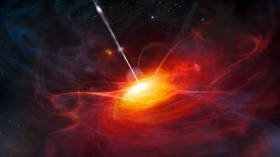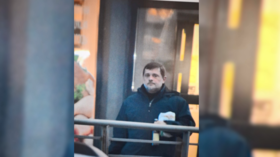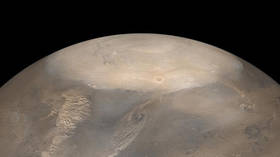Universe may actually have a ‘north’ and a ‘south’ as new tests tear holes in Einstein’s gravity theory

Scientists studying a quasar 13 billion light years away believe they have discovered a ‘direction’ to the universe which, if proven true, would upend not only Einstein’s theory of gravity, but the standard model of cosmology.
The universe is governed by four fundamental forces which stitch it together: gravity, weak nuclear force, strong nuclear force and electromagnetism.
As it turns out, the fundamental physical constant to measure electromagnetism between charged particles is actually surprisingly inconsistent, despite being responsible for tying electrons to nuclei inside atoms and keeping pretty much everything from falling apart.
Also on rt.com Shining like 600 trillions suns: Hubble spots stunning star-producing quasarThat’s according to researchers at the University of New South Wales (UNSW) in Australia, who used images and data from the Very Large Telescope in Chile to measure this force back in the first billion years of the universe.
The results have caused the team to question whether there may actually be a ‘Goldilocks’ effect, or a perfect balance between these fundamental forces, which is required for life to exist at all.
“Putting all the data together, electromagnetism seems to gradually increase the further we look, while towards the opposite direction, it gradually decreases,” says astrophysicist John Webb from the UNSW, adding that, in other directions in the cosmos, the fine structure constant which governs electromagnetism remains the same, indicating some form of directionality.
Their new readings, combined with data gleaned from separate studies, indicate variations in this ‘constant’, which may (once again) upend our current and hard-fought understanding of the universe around us.
In other words, the universe may once have had a ‘north’ and a ‘south’, or definitive points based on these variations in the electromagnetic constant.
“[The new study] seems to be supporting this idea that there could be a directionality in the universe, which is very weird indeed,” Webb says, which implies that the universe may not actually be the same, in a statistical sense, in all directions.
The team’s findings were also supported by separate, and largely unrelated, research in the US by a team who found similar ‘directionality’ among x-rays.
It is still too early to talk about the full implications of the research, but it may force those working on the Grand Unified Theory, the hunt for a singular unifying force in the universe that ties all the others together, to rethink everything.
Throwing an additional spanner in the works is the possible existence of a fifth fundamental force, according to research published last year.
Also on rt.com Physicists claim to have found NEW force of nature which may unravel one of the universe’s greatest MYSTERIESIndeed, our standard model of cosmology is based on an isotropic universe (one which is the same in all directions). This model, in turn, is based on Einstein's theory of gravity which, you guessed it, assumes that the laws of nature are constant.
In other words, we might have to rethink large sections of our physics and our understanding of the universe around us, and come up with entirely new (though exciting) replacements if this new research turns out to be true.
“...It's something you've got to test because it's possible we do live in a weird universe,” Webb says.
Think your friends would be interested? Share this story!














